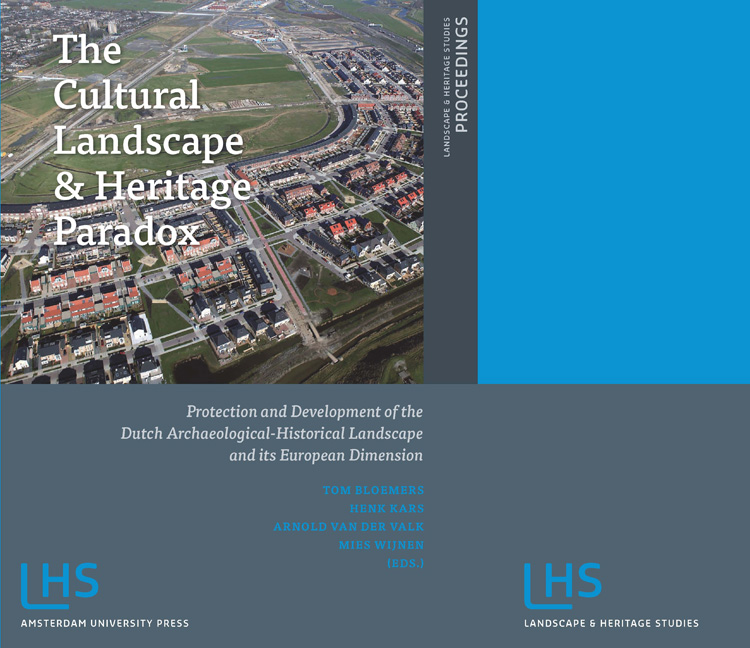 The Cultural Landscape and Heritage Paradox
The Cultural Landscape and Heritage Paradox Book contents
- Frontmatter
- Contents
- Preface
- I INTRODUCTION
- II INSIGHTS AND PROSPECTS OF ARCHAEOLOGICAL-HISTORICAL LANDSCAPE STUDIES
- III LINKING KNOWLEDGE AND ACTION
- IV IMAGINATION - FACTS AND CONSTRUCTIONS
- V SHARING KNOWLEDGE - STORIES, MAPS AND DESIGN
- VI SYNTHESIS AND CONCLUSIONS
- VII MANAGEMENT OF KNOWLEDGE
- VIII AGENDA FOR THE FUTURE
- IX SUMMARY
- X APPENDIX
- Subject Index
- Index of Places and Regions
6 - Cultural Heritage in Environmental Impact Assessment – Reflections from England and Northwest Europe
Published online by Cambridge University Press: 21 January 2021
- Frontmatter
- Contents
- Preface
- I INTRODUCTION
- II INSIGHTS AND PROSPECTS OF ARCHAEOLOGICAL-HISTORICAL LANDSCAPE STUDIES
- III LINKING KNOWLEDGE AND ACTION
- IV IMAGINATION - FACTS AND CONSTRUCTIONS
- V SHARING KNOWLEDGE - STORIES, MAPS AND DESIGN
- VI SYNTHESIS AND CONCLUSIONS
- VII MANAGEMENT OF KNOWLEDGE
- VIII AGENDA FOR THE FUTURE
- IX SUMMARY
- X APPENDIX
- Subject Index
- Index of Places and Regions
Summary
ABSTRACT
This paper considers experiences of assessing cultural heritage impacts within the EIA process in England and northwest Europe based on findings from the Planarch study funded by the European Regional Development Fund Interreg IIIB programme. Overall whilst there are examples of good practice, cultural heritage has a relatively low profile in EIA in the countries studied. Nevertheless, cultural heritage is important and makes wider contributions to society beyond its intrinsic value. Therefore, the profile of cultural heritage needs to be raised both within the planning process and EIA and also in the minds of decision-makers, other specialists and the wider public. Ten guiding principles provide a first step in promoting the assessment of cultural heritage in EIA and also to include the consideration of cultural heritage into more strategic planning decisions through SEA.
KEYWORDS
Environmental impact assessment (EIA), strategic environmental assessment (SEA); cultural heritage, archaeology; England, Europe
INTRODUCTION
In recent years the threat to cultural heritage within Europe has increased due to the increasing pressures of development, changes in farming techniques and the impact of natural processes. It is also important to remember that whilst sustainable development explicitly focuses on the broad themes of social, economic and environmental factors, cultural heritage is also an essential component that cuts across these three themes. Therefore there is a need to identify what is important about the historic environment and manage it appropriately for the benefit of present and future generations.
Previous studies on cultural heritage in environmental impact assessment (EIA) focussed on Europe and the USA and indicated shortcomings related to lack of guidance (Lambrick 1993; King 2000; Braithwaite/ Hopkins/Grover 2001), narrowly focused and limited definitions of what constitutes cultural heritage (King 2000; Bond et al. 2004), and a failure to identify potential cultural heritage impacts during the early stages of EIA in either screening or scoping (Lambrick 1993; King 2000; Braithwaite/Hopkins/Grover 2001; Teller/Bond 2002). In Europe deficiencies were apparent in methods and approaches used to assess effects on cultural heritage, with inconsistencies in the role played by cultural heritage in decisionmaking and little involvement of the public in the consideration of cultural heritage (Bond et al. 2004).
- Type
- Chapter
- Information
- The Cultural Landscape and Heritage ParadoxProtection and Development of the Dutch Archaeological-Historical Landscape and its European Dimension, pp. 445 - 460Publisher: Amsterdam University PressPrint publication year: 2010


